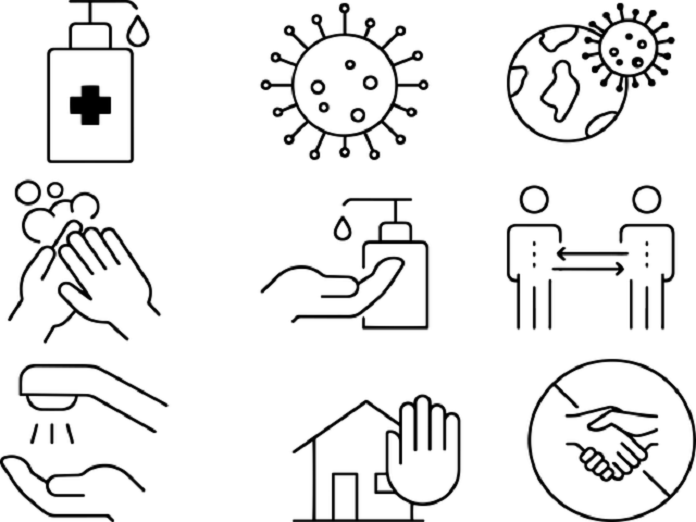Could mouthwash be used routinely as a preventive measure against coronavirus transmission?
Researchers worldwide are zealously searching for potential treatments and vaccines for the SARS-CoV-2 pandemic. But while the search continues, medical personnel look for ways to reduce the potential of the virus to spread. The coronavirus is typically spread by droplets exhaled by infected persons, and the viral load can be high in the nose and nasal cavity.
The coronavirus is surrounded by a protective envelope that can be destroyed by antiseptics, such as alcohol. This gives medical personnel and the public an effective tool for sanitizing hands to prevent the viral spread. Scientists theorized that performing a similar cleansing of the nose and mouth might lower the concentration of the coronavirus and the risk of spreading the virus. This would be especially useful for medical professions in the dental field.
To test this theory, German researchers from Ruhr-Universität Bochum assessed eight different types of mouthwash to determine whether they could kill the coronavirus. Their results were published in the Journal of Infectious Diseases.
The researchers evaluated eight commercially available types of mouthwash against three different strains of the SARS-CoV-2 virus. The researchers infected African green monkey cells with the coronavirus because those cells are especially susceptible to the SARS-CoV-2 virus. From this scientists were able to determine the viral load, which is the concentration of the virus in a certain volume of blood. To mimic actual conditions, an interfering substance was added to mimic respiratory secretions. Each mouthwash was shaken for 30 seconds with each viral strain to imitate gargling.
Mouthwash reduces viral load
All eight mouthwashes reduced the viral load of the coronavirus, but three performed significantly better than the rest.
The active ingredients in the three mouthwashes that performed best were: dequalinium chloride and, benzalkonium chloride; polyvidone-iodine; and ethanol and essential oils. The study results suggest that mouthwash can reduce the viral load of coronavirus. However, mouthwash cannot be used to treat the coronavirus.
Study author Toni Meister stated in a press release, “Gargling with a mouthwash cannot inhibit the production of viruses in the cells, but could reduce the viral load in the short term where the greatest potential for infection comes from, namely in the oral cavity and throat – and this could be useful in certain situations, such as at the dentist or during the medical care of Covid-19 patients.”
Written by Rebecca K. Blankenship, B.Sc.
Reference:
Toni Luise Meister, Yannick Brüggemann, Daniel Todt, Carina Conzelmann, Janis A Müller, Rüdiger Groß, Jan Münch, Adalbert Krawczyk, Jörg Steinmann, Jochen Steinmann, Stephanie Pfaender, Eike Steinmann, Virucidal efficacy of different oral rinses against SARS-CoV-2, The Journal of Infectious Diseases, , jiaa471, https://doi.org/10.1093/infdis/jiaa471
Image by Annalise Batista from Pixabay



